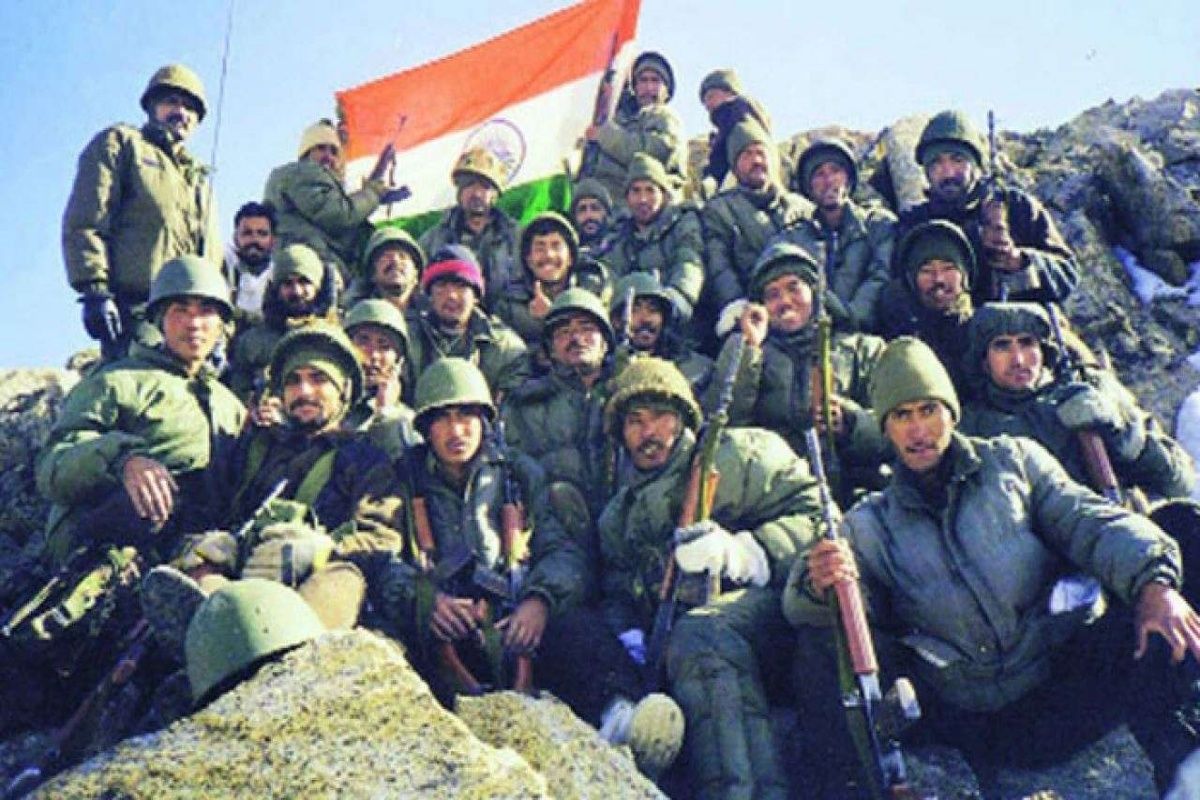
Kargil Vijay Diwas: The Legend of the Sacrifice and Valor
The Kargil War fought in the year 1999 between India and Pakistan, was a shaping moment in the history of both nations. This conflict happened in the Kargil district of Jammu and Kashmir and lasted for over two months. The war remains etched in the memory of the world, not only for its strategic significance but also for the exemplary valor and sacrifice displayed by the soldiers on both sides.
Kargil Vijay Diwas is celebrated in India on July 26th every year to commemorate the victory of the “Indian Armed Forces” in the Kargil War of 1999. It is a day to remember, honor, and express gratitude toward the brave soldiers who sacrificed their lives in the line of duty.
Story of Kargil Vijay Diwas
The roots of the Kargil War are still available in the age-old territorial dispute over Jammu and Kashmir between India and Pakistan. The Line of Control (LoC) marked the legitimate border between the two countries, and the Kargil sector was an important part of it. However, Pakistan initiated an infiltration operation in the summer of 1999 to capture strategic peaks and positions along the LoC, disregarding established agreements and treaties. Kargil was strategically vital due to its proximity to the National Highway connecting Srinagar to Leh. Its control provided Pakistan with the ability to threaten Indian supply lines and communication routes. The surprise intrusion by Pakistani forces caught India off-guard and led to a fierce confrontation in the high-altitude mountainous terrain.
The Kargil War officially began on May 3rd, 1999, and ended on 26th July 1999, when the Indian Army discovered the presence of Pakistani soldiers on strategic heights. The Indian forces launched a counter-offensive to reclaim the occupied territories, leading to intense fighting in some of the harshest terrains on Earth.
On 11th July, India was successful at recapturing key peaks in Batalik and the then Prime Minister Atal Bihari Vajpayee declared the success of “Operation Vijay” on 14th July. The conflict finally ended on 26th July 1999 and IAF announced eviction of Pakistani trespassers.
Indian Soldiers who were the part of War
The Kargil War witnessed extraordinary bravery and valor displayed by Indian soldiers, who fought with unmatched determination and resilience. Despite the harsh weather conditions, difficult terrain, and relentless enemy fire, the Indian troops displayed unwavering courage in reclaiming the infiltrated positions one by one.
Captain Vikram Batra:
Captain Vikram Batra, famously known as “Sher Shah” (Lion King), was a remarkable Indian Army officer. His daring and audacious actions during the war earned him the highest wartime gallantry award, the Param Vir Chakra (PVC). He sacrificed his life while rescuing an injured officer and fighting off Pakistani soldiers in the Battle of Point 4875.
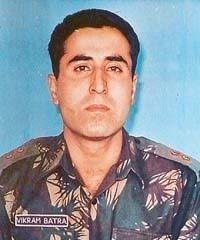
Grenadier Yogendra Singh Yadav:
Grenadier Yadav, with indomitable spirit and determination, played a pivotal role in capturing Tiger Hill, one of the most challenging and strategic peaks in the Kargil sector. He was awarded the Param Vir Chakra for his exceptional bravery during the assault on the enemy’s position. Even though 12 bullets hit him, he played a major role in capturing Tiger Hill being a part of the Ghatak Force commando platoon.

Major Padmapani Acharya:
Major Acharya, popularly known as “Dada,” displayed extraordinary leadership and bravery while leading his troops in the Battle of Tololing. His strategic understanding and gallantry helped in recapturing the Tololing Peak from Pakistani forces.
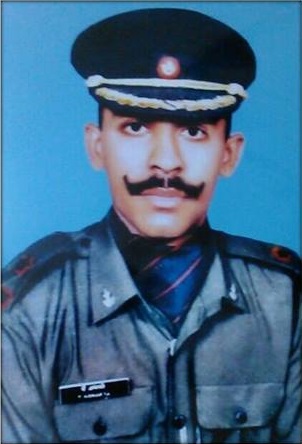
Lieutenant Manoj Kumar Pandey:
Lieutenant Pandey, an officer of the 1/11 Gorkha Rifles, exhibited exceptional valor in the attack on Khalubar in the Batalik sector. He was involved in a series of boldly led attacks. He was posthumously awarded the Param Vir Chakra for his courageous leadership and bravery in the war.

Captain Anuj Nayyar:
Captain Nayyar displayed immense courage during the Battle of Point 4875 for securing Pimple II, a peak within the Pimple Complex. Despite being severely injured, he continued to lead his troops until he succumbed to his injuries without waiting for aerial support on 6 July. He was posthumously awarded the Maha Vir Chakra (MVC) for his indomitable spirit and dedication to the nation.
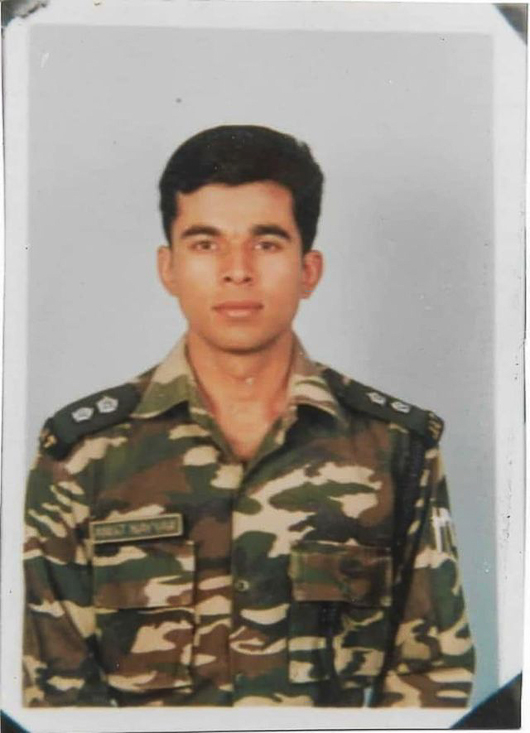
Flight Lieutenant Kambampati Nachiketa:
In a significant contribution from the Indian Air Force, Flight Lieutenant Nachiketa’s courage stood out. He was shot down during air combat with Pakistani forces and held captive for eight days before being released. His resilience and bravery earned him admiration across the nation.
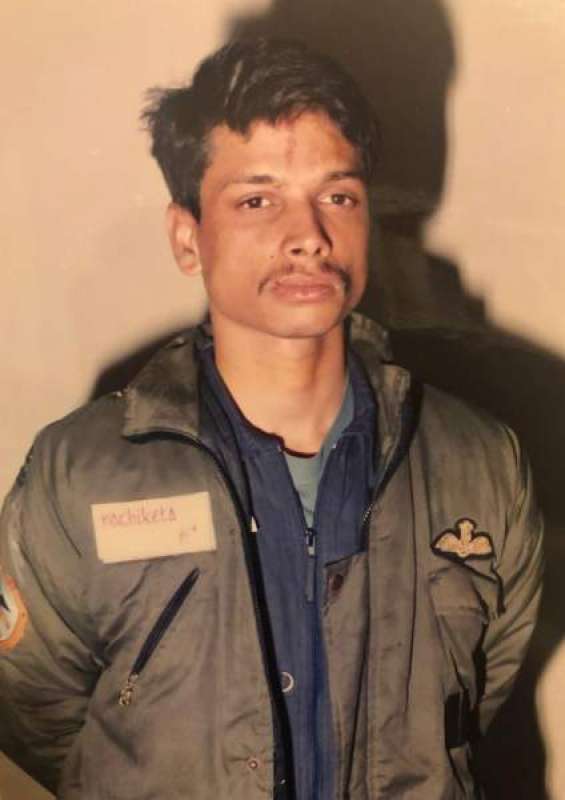
Major Rajesh Singh Adhikari:
Major Adhikari, an officer of the 2nd Battalion of the Garhwal Rifles, played a crucial role in leading his troops to victory in the Battle to capture Tololing Feature. Despite being injured, he continued to inspire and guide his unit until he made the ultimate sacrifice. For his bravery during the war, he was posthumously honored with the second-highest military award in India, the Mahavir Chakra. When his body was recovered after 13 days, there was an unread letter in his pocket from his wife.
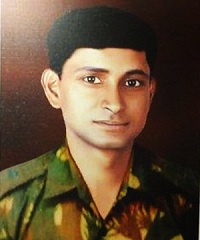
Captain Sanjeev Dahiya:
Captain Dahiya, an officer of the 2nd Rajputana Rifles, displayed exceptional leadership and bravery during the capture of Point 5140. His determination and strategic acumen were instrumental in securing the peak for Indian forces.
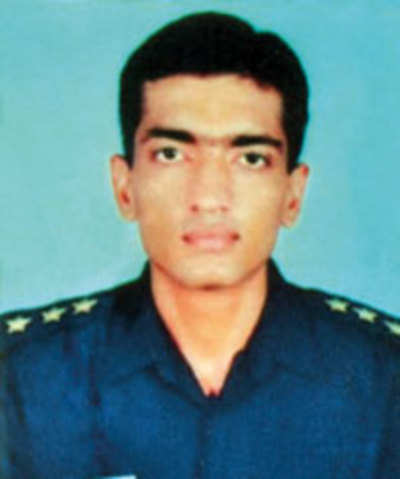
Lieutenant Colonel Vishwanathan:
Lieutenant Colonel Vishwanathan, an officer of the 2nd Rajputana Rifles, led from the front during the Battle of Tololing. His exceptional leadership and personal courage inspired his men to achieve victory.
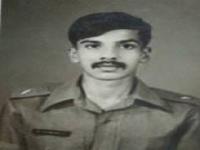
Rifleman Sanjay Kumar:
The young Rifleman Sanjay Kumar, 13th Battalion of the Jammu and Kashmir Rifles, is prominent for his great bravery during the Battle of Tololing. Despite many injuries, he fought on doggedly and was awarded the Param Vir Chakra for his bravery.

Havildar Karam Singh:
Havildar Karam Singh, a non-commissioned officer in the 8th Battalion, Sikh Regiment, displayed exceptional courage in various operations during the war.

Airpower in the war
During the Kargil War, the Indian Air Force (IAF) played a pivotal role in supporting the ground forces through Operation Safed Sagar. This operation involved executing a series of precision airstrikes on Pakistani positions that had infiltrated the Kargil region. The IAF’s timely and accurate airstrikes proved crucial in inflicting heavy damage on enemy forces and neutralizing their strategic locations. The relentless air support by the IAF boosted the morale of the Indian troops on the ground, instilling a sense of determination in them. The unwavering commitment and dedication of the IAF to protecting the nation result in the success of Operation Safed Sagar, making it an integral part of India’s victory in the Kargil War.
End of the Kargil War
The Kargil War ended in July 1999 when India successfully recaptured all the occupied territories. The war had significant implications for India-Pakistan relations, with Pakistan facing diplomatic isolation due to its aggressive actions.
The Kargil War resulted in numerous casualties and loss of lives on both sides. India mourned the loss of over 500 soldiers, while Pakistan also suffered substantial losses. The war reminded the world of the harsh realities of armed conflicts and the sacrifices made by soldiers to protect their nations. The Kargil War offered several lessons to India and Pakistan. It highlighted the importance of vigilance and maintaining a strong defense in the volatile region of Jammu and Kashmir. The conflict also emphasized the need for open communication and diplomatic dialogue between the two nations to prevent future escalations.
Kargil Vijay Diwas Celebrations:
On Kargil Vijay Diwas, India pays tribute to the brave soldiers who laid down their lives to protect the country. Various ceremonies, parades, and functions are organized across the nation to honor the martyrs and express gratitude to the armed forces. The day serves as a reminder of the sacrifices made by our soldiers and reinforces the nation’s commitment to safeguarding its sovereignty.

